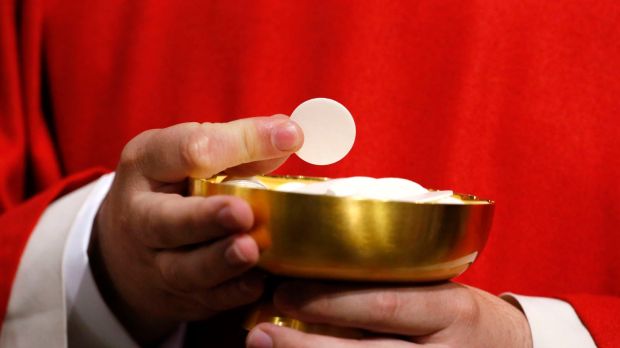Many of us recall being taught to attend Mass every Sunday and receive Holy Communion as often as possible, but we may not always remember the reason for doing so.
Receiving Holy Communion is not an obligation or another rule to follow, but a practice encouraged for our own spiritual benefit.
Union with Jesus Christ
Sometimes it can be easy to forget that Holy Communion is aimed at union with Jesus Christ.
The Catechism of the Catholic Church reminds us of this primary fruit or benefit of Holy Communion:
Holy Communion augments our union with Christ. The principal fruit of receiving the Eucharist in Holy Communion is an intimate union with Christ Jesus. Indeed, the Lord said: “He who eats my flesh and drinks my blood abides in me, and I in him.” Life in Christ has its foundation in the Eucharistic banquet: “As the living Father sent me, and I live because of the Father, so he who eats me will live because of me.”
CCC 1391
When we receive the consecrated host into our body, we receive Jesus Christ himself, body, blood, soul and divinity.
If our heart is open and ready to receive Jesus, we will be brought into an even deeper union with him at Holy Communion.
Receiving Holy Communion can also increase various spiritual graces within our soul, just as consuming food provides for our material needs:
What material food produces in our bodily life, Holy Communion wonderfully achieves in our spiritual life. Communion with the flesh of the risen Christ, a flesh “given life and giving life through the Holy Spirit,” preserves, increases, and renews the life of grace received at Baptism. This growth in Christian life needs the nourishment of Eucharistic Communion, the bread for our pilgrimage until the moment of death, when it will be given to us as viaticum.
CCC 1392
Frequent reception of Holy Communion can help increase these benefits, drawing us closer and closer to our ultimate goal of union with Jesus Christ.



